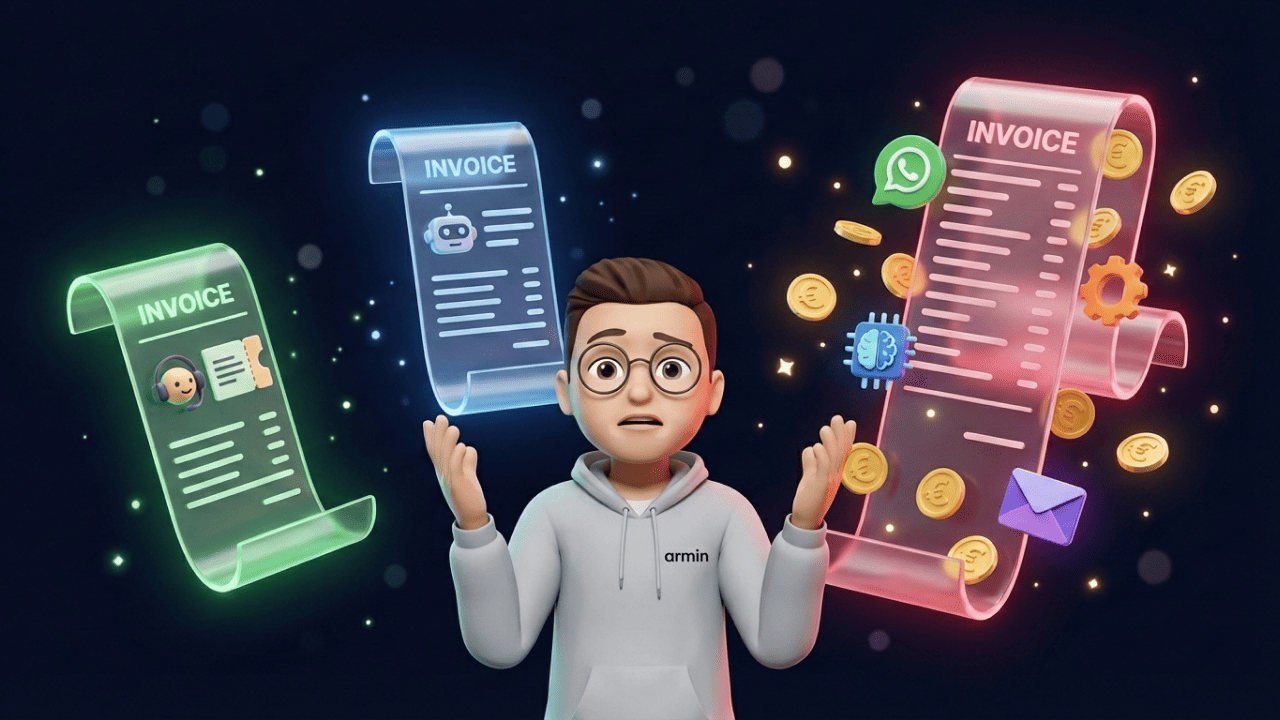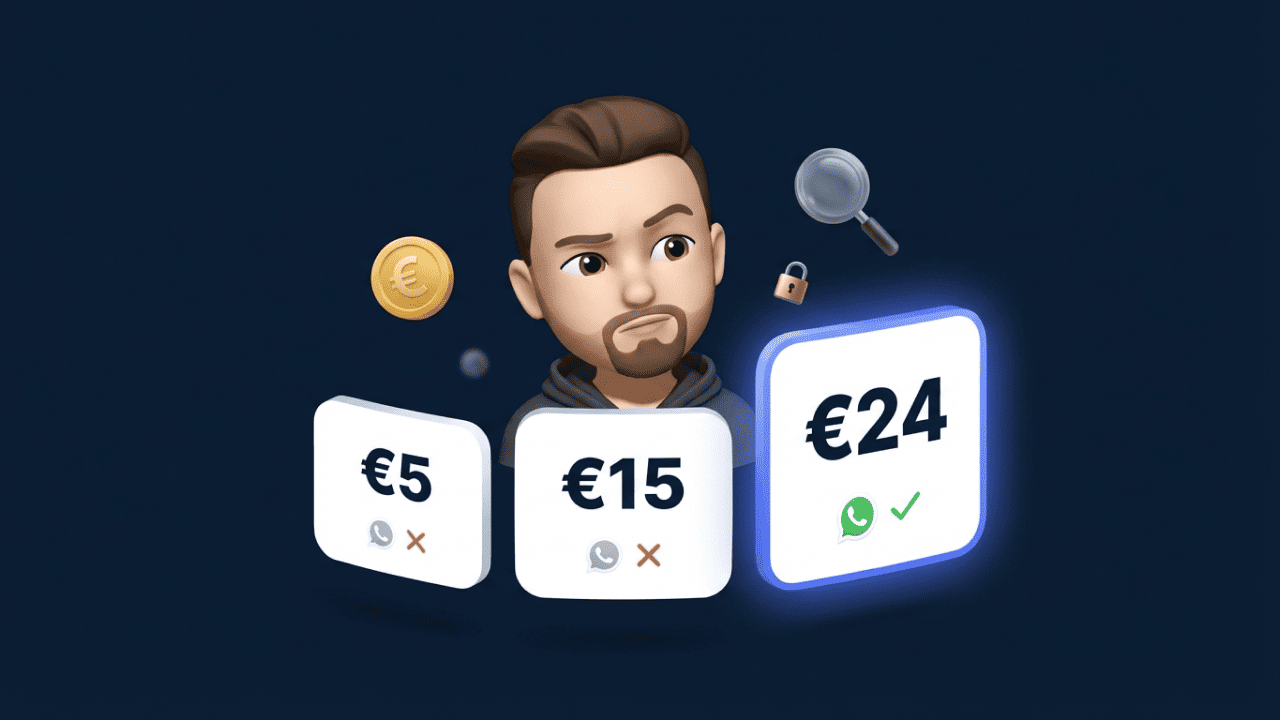For smaller e-commerce teams in the DACH region, a tailored CRM system for small businesses is essential – cost-efficient, easy to use, and immediately relieving in everyday operations.
What can CRM software really do for small teams?
CRM software for small businesses is specifically designed to meet the needs and challenges of small teams. Compared to complex enterprise solutions, these systems offer a user-friendly, centralized platform where all important customer data, contacts, and processes can be clearly managed – whether the focus is on sales, marketing, or customer service.
Especially in e-commerce, starter platforms or starter suites for small businesses can make a real difference: they ensure that no leads are lost, deals are continuously tracked, and customer communication remains structured. Unlike traditional spreadsheets or disconnected tools, a CRM system for small businesses is specifically built to actively shape customer relationships – not just manage them.
A good CRM system collects, analyzes, and uses customer data to automate recurring tasks and take customer relationship management to a new level. The focus is always on simplification: processes such as lead management, email marketing, or logging customer contacts can be handled centrally, saving time and resources.
Why is CRM so valuable for small businesses?
Small businesses often operate with tight budgets, limited manpower, and many parallel tasks. Without clear structure, it’s easy to lose track. CRM software helps by offering several benefits:
Price-sensitive starter versions often start under €30/month – ideal for small budgets.
Efficiency through relief: automatic follow-ups, quote reminders, and discount actions run by themselves.
Centralized customer data instead of Excel islands – clear instead of chaotic.
Customer service software and contact management combined in one tool – no more media breaks.
Scalability: modules such as reporting, project management, or WhatsApp integration can be added later.
The result? Less operational burden, more strategic control.
Essential features of modern CRM tools
What must good CRM software for small businesses offer today? At least the following features are essential:
Lead management & sales pipeline
Sales deals can be tracked in a structured way – from lead capture to closing.
Email marketing
Automated campaigns, segmentation by customer groups, and personalized offers directly delivered via the CRM.
Automation
Tasks such as follow-ups, discount codes, or status changes run with one click – noticeably relieving your team.
Dashboards and reports
Clear visualization of key metrics: leads, deals closed, pipeline value, and revenue.
Integrations & API
Shop, accounting, project management & support systems can be connected flexibly.
GDPR-compliant & cloud hosting
Data stored in EU data centers, encrypted transmission, and secure login methods.
Comparison of the best CRM tools for small businesses in the DACH region
| CRM Provider | Ideal for | Special Feature |
|---|---|---|
| Chatarmin | E-commerce & growing businesses | Messaging-first CRM with strong CX & WhatsApp integration |
| HubSpot CRM | Start-ups & lead gen | Free to start, ideal for email, deals, and marketing |
| Zoho CRM | Small businesses with 5+ staff | Highly customizable, many features |
| Pipedrive | Sales teams | Sales pipeline & automation |
| Freshsales | CRM + CRM suite | Lead scoring and workflow automation |
| Dynamics 365 | IT teams & growing businesses | Deep integrations, scalable |
How do you find the right CRM solution?
The choice depends on your team, budget, and requirements. Checklist:
Budget & pricing: affordable starter version for a small team.
Email & lead support: segmentation, campaigns & follow-ups must be simple.
Automation: standard workflows such as discounts, quotes, or birthday campaigns ready to use.
Support & user-friendliness: quick onboarding saves time.
Data protection & GDPR: mandatory for every provider.
Integration extensions: shop, project management, support must be easy to connect.
CRM design in practice
Pilot entry: test the starter suite for two weeks, initial setup with contact and deal structure.
Involve the team: training, joint data migration, assign lead responsibilities.
Set up processes: automated follow-up chains, discount campaigns, email campaigns.
Integrate reporting with dashboards: keep track of daily KPIs such as new leads, message counts, and revenue.
Develop further: flexibly add modules – such as project management or WhatsApp integration.
Efficiency gains and relief: the key benefits
A customer relationship management system immediately brings structure to small e-commerce teams. Instead of chaotic Excel lists, everything runs centrally: contacts, deals, and inquiries are accessible at any time. Nothing gets lost – even at high speed or with limited staff.
With automated follow-ups, clear workflows, and integrated communication (e.g. email, ticketing, WhatsApp), your team saves valuable time. Customer service becomes easier, faster, and more transparent – without complex tools.
Reports also provide valuable insights: which campaigns work? Where are the bottlenecks? This makes a CRM a real relief – and an efficient control tool for everyday work.
Why an all-in-one solution makes particular sense
Especially for small teams, an all-in-one CRM solution is worthwhile: instead of combining multiple tools for email marketing, customer service, lead management, or reporting, everything runs in one system.
This not only saves costs but also reduces complexity – your team works more efficiently because all functions are coordinated. Updates, integrations, and training only affect one system. This keeps things simple, processes are faster to set up, and your business can scale professionally with minimal effort. Ideal for small e-commerce companies that don’t have time for tool chaos.
Typical use cases: from lead management to customer retention
A central CRM consolidates all leads, contacts, and data in a clear sales pipeline. New prospects are automatically added to the CRM – via website, newsletter sign-ups, messaging, or WhatsApp campaigns. Automated workflows ensure that every lead is individually addressed, followed up on, and guided to a purchase – from simple welcome sequences to complex discount campaigns or targeted follow-ups, for example when a customer abandons a purchase. This makes brand loyalty easier and increases the repurchase rate.
CRM in everyday marketing:
Welcome emails
Discount triggers for inactivity
Retargeting with special campaigns via specific channels (e.g. WhatsApp)
Birthday offers
CRM platform in customer service:
Automated responses
Escalation levels for complaints
Omnichannel support (email, chat, WhatsApp)
CRM in sales:
Lead scoring
Follow-up reminders
Pipeline reports for performance analysis
Conclusion: CRM software for small e-commerce companies
For DACH start-ups and SMEs, a CRM becomes the central operations software: structured, automated, and affordable. Tools like Chatarmin, HubSpot CRM, and Zoho CRM provide targeted relief for teams with 2–10 employees. They meet the requirements for contact and lead management, email marketing, integration features, and GDPR-compliant operation.
With the right CRM, you can balance budget efficiency and professional customer care – strengthening your competitive advantage and creating room for growth.
Frequently Asked Questions
Which CRM functions are essential for a small e-commerce company?
For small businesses in e-commerce, lead management, automated sales workflows, integration of email & WhatsApp communication, powerful contact management, a clear sales pipeline module, as well as reports and analytics are essential.
How can CRM software for small businesses be easily integrated?
CRM software for small businesses should offer open interfaces (APIs), plugins, and tools like Zapier. Many modern solutions allow direct integrations with shop systems, email marketing platforms, and accounting.
How can I recognize a GDPR-compliant CRM system?
Look for data storage and processing within the EU, certified encryption, rights and role management, and transparent data protection policies from the provider. Serious CRM providers publish such evidence openly.
Is there CRM software with WhatsApp and email integration?
Yes, CRM tools like Chatarmin specialize in integrating WhatsApp, email, and other channels, allowing central control of all communication channels from one interface.
How much does CRM software for small businesses cost?
Most starter versions or basic packages start at around €20–50 per user per month. Many providers offer tiered pricing and monthly cancellation options for maximum flexibility.






![Shopify WhatsApp: Chatarmin’s Shopify WhatsApp Integration [UPDATE 2026!]](https://blogfiles-chatarmin.s3.eu-central-1.amazonaws.com/Whats_App_fuer_D2_C_Brands_Best_Practice_Cases_0a3e7f6754.jpg)
![Salesforce WhatsApp-Integration [Update 2026]](https://blogfiles-chatarmin.s3.eu-central-1.amazonaws.com/Salesforce_Whats_App_Integration_Sales_Cloud_Whats_App_Integration_0d11a96c30.jpeg)
